Garden netting can be a great way to add an extra layer of protection and privacy to your garden. Not only will it help keep pests out, but it can also serve as a creative design element for your outdoor space.
In this article, we’ll explore Garden Netting Ideas that you can use in your home or garden. We’ll also discuss how to use netting effectively, as well as tips for maintenance and storage. So, let’s get started!
What Is Gardening Netting?
Garden netting is a versatile form of protection that can help keep critters and debris out of your garden while still allowing you to enjoy its beauty.
It is light, flexible and easily stored in rolls or folded up when not in use. Netting comes in various shapes, sizes, colours and styles – depending on the material used – so you can find something to suit almost any theme or design.
Benefits of Gardening Netting
Garden netting can help protect your garden from pests like rabbits and birds. It also lets air in so your plants can get oxygen. Garden netting is great for making privacy screens, walkways, and other designs without taking up much room.
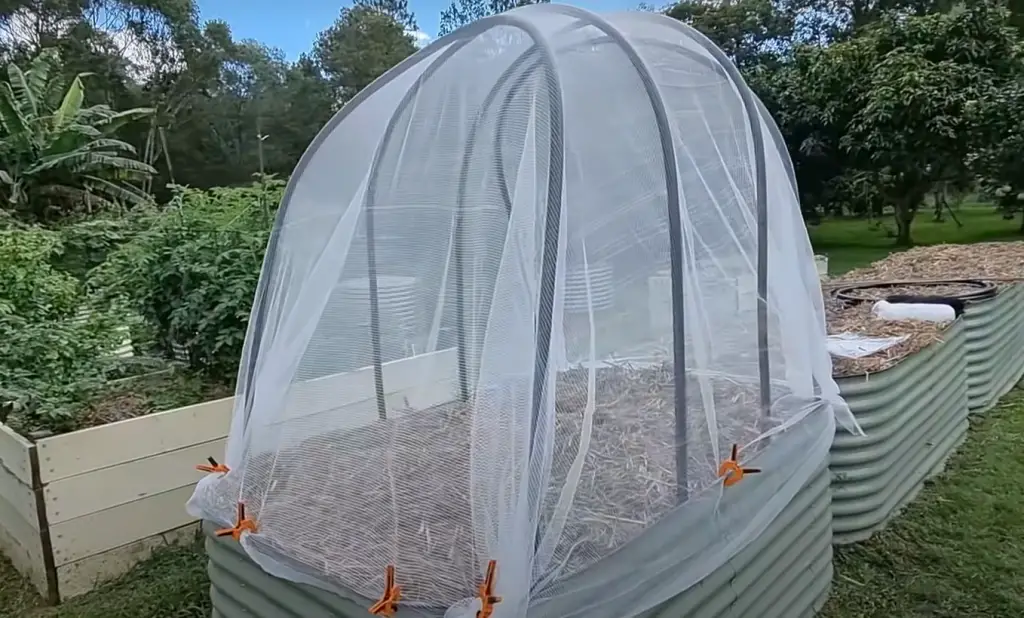
Plus, it doesn’t need a lot of care and you can easily store it away when you’re done using it. [2]
How to Choose the Best Garden Netting?
When buying garden netting, think about size, material and colour. Choose the type of netting that best fits your plants and protects them from pests or bad weather. Some materials may work better in certain areas like sunny or windy places.
Choose materials that will last a long time. Vinyl coated mesh is strong and won’t fade in the sun or get ruined by water. It comes in lots of colors so you can pick one that matches your style.
Polyethylene netting is another good option because it is light but strong and you don’t need to do much to take care of it.
Size
Choose the size of your netting based on the size of your garden, plants and how much protection you need. If you want to make walkways or privacy screens, measure that area before buying netting so you get the right amount.
Material
Depending on your climate and needs, different materials may work better than others.
Vinyl coated mesh is sturdy and comes in lots of colors for a stylish look.Mesh diameter
Mesh diameter refers to the size of the holes in the netting. The smaller the mesh, the less sunlight and air will get through. If you want more privacy or protection from pests, go with a smaller mesh diameter.
How to Install Garden Netting?
Once you’ve chosen the garden netting that’s right for your needs, it’s time to install it. First, measure the area and make sure you have enough netting to cover it.
Then, secure the corners of the netting with zip ties or clips and attach it to a fence or other structure if needed. Make sure the netting is taut and secure so it won’t move when the wind blows.
If you’re using netting to make privacy screens, use multiple layers of the same mesh diameter for a more effective barrier.
To create walkways, attach the netting to posts or stakes in the ground. Make sure it’s even and tight so nothing will get caught in it.
Best Garden Netting For Your Home
Garden netting is a great way to add an extra layer of protection and privacy to your garden. It can be used to keep pests out, while still allowing you the freedom to express yourself creatively with different designs.
Vinyl coated mesh is strong and has many colors. Polyethylene netting is light but it lasts a long time. Measure the area you want to cover carefully. Install it correctly so it will stay in place for years! With some care, your garden netting will look great!
General Purpose Garden Net
Butterfly Plant Netting
It has a tight mesh which allows for good air circulation. It is strong and can be used to protect plants from birds and other pests. The UV-treated polyethylene means the netting won’t fade in the sun or get ruined by water. It is easy to install and comes with clips for attaching it to fences or posts. [1]
Heavy-Duty Brassica Netting
This netting is perfect for protecting your vegetable plants from birds and other pests. The brassica mesh is strong and has been UV-treated to keep it from fading in the sun.
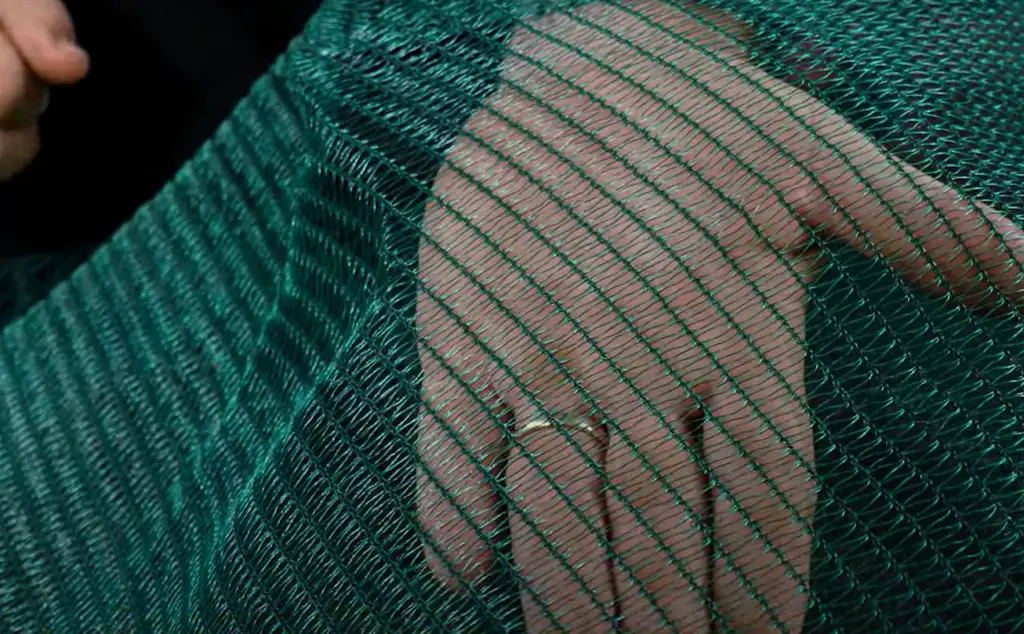
It’s easy to install and comes with clips for attaching it to fences or posts. You can also use this netting as a walkway, privacy screen or to create a barrier around your garden.
Fine Insect Netting
This is a great choice for keeping out small pests such as aphids and thrips. The fine mesh will keep them out while still allowing sunlight and air to pass through.
It is UV-treated so it won’t fade in the sun or get ruined by water.
Fruit Cages
Fruit cages are perfect for keeping birds away from your fruit trees. They are made of a strong mesh which will protect the fruit while still allowing air and sunlight to pass through.
The cages come with clips for attaching it to fences or posts. With some care, your fruit cage will last for years!
Low Fruit Cages
These cages are perfect for keeping smaller birds away from your fruit trees. The low profile design won’t obstruct the view of your garden.
They come with clips for attaching it to fences or posts and are made of a strong mesh which will protect the fruit while still allowing air and sunlight to pass through.
Walk-in Fruit Cages
These cages are ideal for larger gardens where you need more space for your plants. They come with clips for attaching it to fences or posts and are made of a strong mesh which will protect the fruit while still allowing air and sunlight to pass through.
The walk-in design makes it easy to access your fruit trees without having to climb over the netting.
Tips for Installing Garden Netting
- When installing garden netting, make sure it is secure and taut.
- Use heavy-duty clips or zip ties to attach the corners of the netting to fences or posts.
- Make sure the mesh is tight enough so nothing will get caught in it.
- For best results, use multiple layers of the same mesh diameter for a more effective barrier.
- To create walkways, attach the netting to posts or stakes in the ground.
- Make sure it’s even and tight so nothing will get caught in it.
- Finally, check the netting regularly for any signs of wear or damage. Replace it if necessary to keep your garden safe and secure!
FAQ
What can I use instead of garden mesh?
You can use garden fencing, trellises or even lattice fences to protect your plants from pests. These are all good options but they won’t provide the same level of protection as netting.
How long does garden netting last?
The life of your garden netting will depend on how well it is installed and cared for. With proper installation and care, your garden netting can last for years.
What is the best type of garden netting?
The best type of garden netting will depend on what you are trying to protect your plants from.
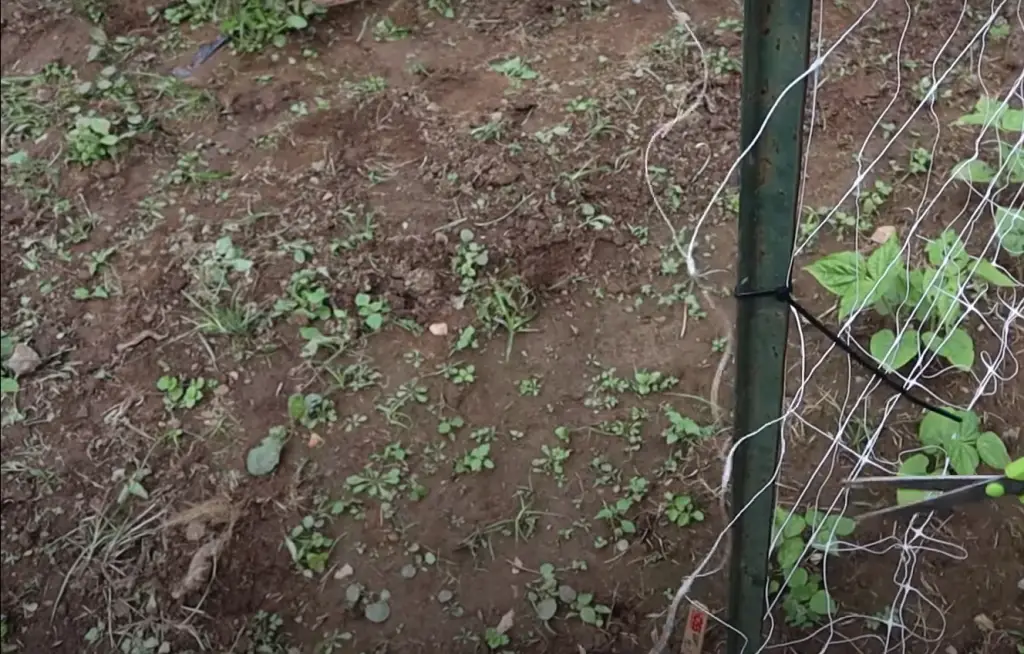
If you are looking to keep out smaller pests such as aphids and thrips, then fine insect netting is the best choice. For larger pests like birds, brassica netting or fruit cages are a good option.
Do I need to use clips to attach garden netting?
Yes, using clips or zip ties is the most secure way to attach your netting to fences or posts. Make sure the clips are heavy-duty and the mesh is taut to get the best results.
Can I use garden netting as a walkway?
Yes, you can use garden netting as a walkway. Make sure it’s even and secure so nothing will get caught in it! You can also use it to create privacy screens around your garden.
How do you hold up netting for a garden?
You can use clips or zip ties to attach the corners of the netting to fences or posts. You can also use stakes in the ground for a more secure attachment. Make sure it’s even and taut so nothing will get caught in it!
What is the best netting for vegetable gardens?
Garden netting is a great way to protect your plants from pests. If you are looking to keep out smaller insects, then fine insect netting is the best choice. For larger pests like birds, brassica netting or fruit cages are a better option.
What is the best mesh for protecting vegetables?
The best mesh for protecting vegetables is fine insect netting. This will keep out smaller pests like aphids and thrips without blocking air or sunlight from reaching your plants.
For larger pests, such as birds, you should use a heavier duty mesh such as brassica netting or fruit cages.
Will netting stop plants from growing?
No, garden netting should not stop plants from growing. The mesh is designed to be light and airy so it won’t block sunlight or air circulation.
However, if the netting is too tight it may cause stress on the plant and restrict growth. Make sure it is taut but not overly tight!
Can I put garden netting over a fence?
Yes, you can attach your garden netting to a fence or posts. Make sure it’s even and taut so nothing will get caught in it.
You should also use heavy-duty clips or zip ties to secure the corners of the netting to provide extra stability. With some care and attention, your garden netting will last for years!
Do tomatoes need netting?
Tomatoes do not need netting but it can be beneficial to keep out pests and birds.
Make sure the mesh is taut but not overly tight so it won’t restrict air or sunlight from reaching the plants.Can I put garden netting over potted plants?
Yes, you can use garden netting over potted plants to protect them from pests. However, make sure it is not overly tight as this could cause stress on the plant and restrict growth.
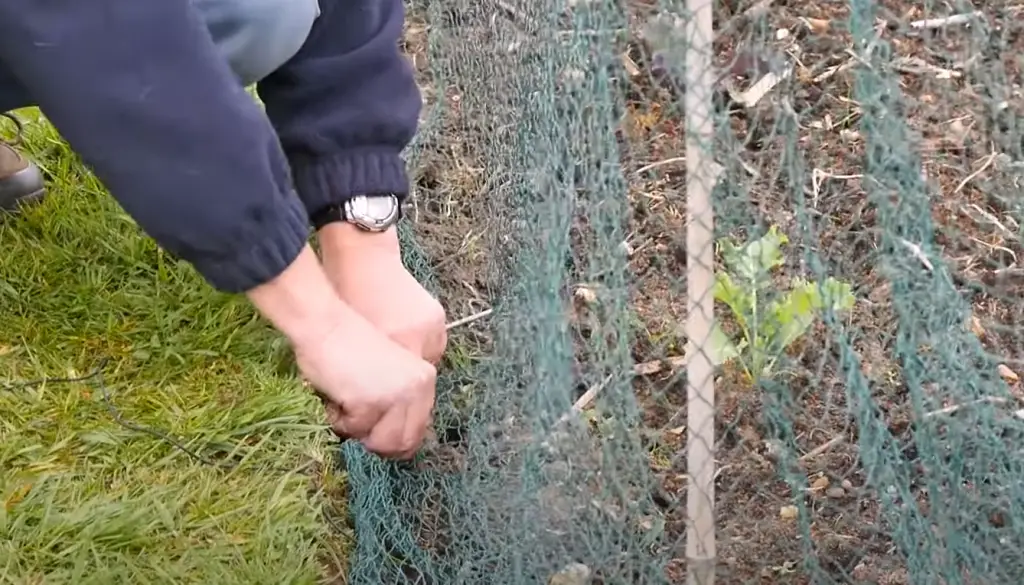
You should also use heavy-duty clips or zip ties to secure the corners of the netting for extra stability.
Can I use garden netting to protect plants from frost?
Yes, you can use garden netting to protect plants from frost but it should not be left on overnight as this could cause further damage.
Make sure the mesh is taut and secure so nothing will get caught in it. You should also ensure there is enough air circulation so the plants don’t overheat.
What kind of netting do I need for my vegetable garden?
The type of netting you need for your vegetable garden will depend on what pests you are trying to protect your plants from. If you are looking to keep out smaller insects, then fine insect netting is the best choice.
For larger pests like birds, brassica netting or fruit cages are a better option. Make sure the mesh is taut but not overly tight so it won’t restrict air or sunlight from reaching the plants.
How long will garden netting last?
Garden netting will last for many years if it is properly cared for. Make sure the mesh is taut and secure so nothing will get caught in it.
You should also use heavy-duty clips or zip ties to secure the corners of the netting to provide extra stability. With some care and attention, your garden netting will last for years!
What is the best way to install garden netting?
The best way to install garden netting is to make sure it is even and taut. You should also use heavy-duty clips or zip ties to secure the corners of the netting for extra stability.
Make sure there are no gaps in coverage so that nothing can get inside and cause damage. With some care and attention, your garden netting will last for years!
What is the difference between bird netting and fruit cages?
Bird netting is a lightweight mesh designed to keep out smaller birds while fruit cages are larger and sturdier structures designed to protect crops from larger birds.
Both types of protection can be effective depending on your needs. Make sure the mesh is taut but not overly tight so it won’t restrict air or sunlight from reaching the plants.
Can I paint garden netting?
Yes, you can paint garden netting to make it more aesthetically pleasing and easier to spot when checking for pests. However, make sure you use a non-toxic paint that won’t harm the plants.
Make sure the mesh is taut and secure so nothing will get caught in it. You should also ensure there is enough air circulation so the plants don’t overheat.
What are other alternatives to garden netting?
Other alternatives to garden netting include row covers, floating row covers, and even plastic tunnels.
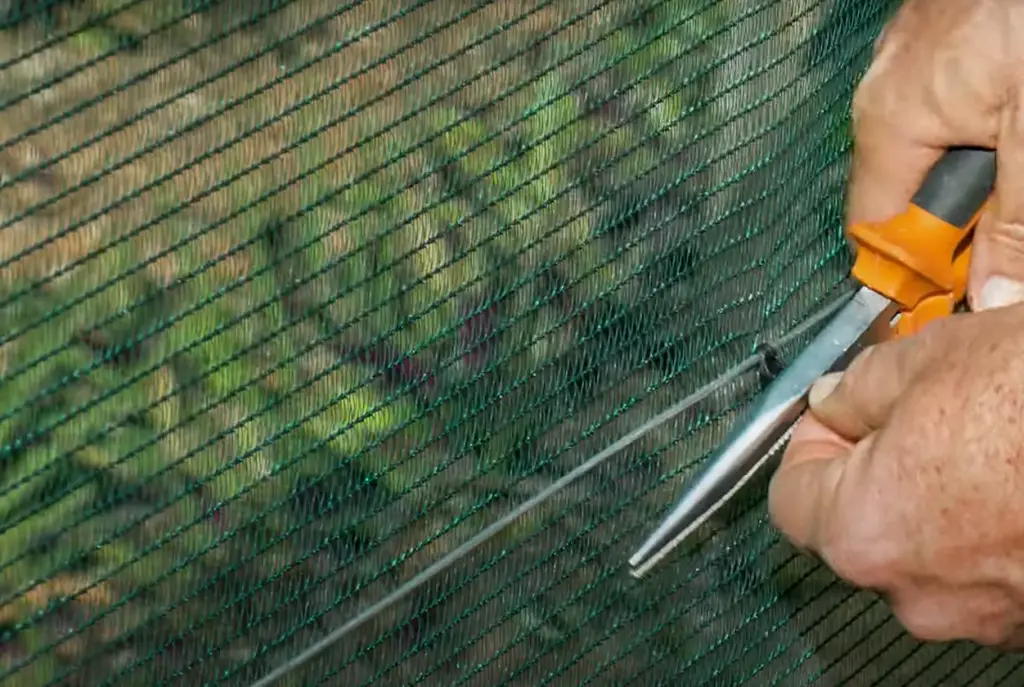
All of these options can be effective in keeping out pests and providing protection from frost. Make sure the material is taut but not overly tight so it won’t restrict air or sunlight from reaching the plants.
What are some tips for using garden netting?
Some tips for using garden netting include making sure the mesh is taut and secure so nothing will get caught in it. You should also use heavy-duty clips or zip ties to secure the corners of the netting for extra stability.
Additionally, make sure there are no gaps in coverage so that nothing can get inside and cause damage. With some care and attention, your garden netting will last for many years!
What are some alternatives to netting?
Alternatives to garden netting include row covers, floating row covers, and even plastic tunnels. All of these options can be effective in keeping out pests and providing protection from frost.
Additionally, you can use scarecrows or bird deterrents such as reflective tape, kites, or flags.
How do I protect my garden from animals?
The best way to protect your garden from animals is to use a combination of netting and deterrents. Make sure the mesh is taut but not overly tight so it won’t restrict air or sunlight from reaching the plants.
You can also use scarecrows, reflective tape, kites or flags to deter larger animals. Finally, make sure there are no gaps in coverage so that nothing can get inside and cause damage. With some care and attention, your garden will be safe from pests!
How can I make sure my netting is secure?
To ensure your netting is secure, use heavy-duty clips or zip ties to secure the corners of the netting for extra stability.
Additionally, you should check for any gaps in coverage so that nothing can get inside and cause damage.
How often should I check my netting?
It is important to inspect your garden netting regularly, at least once a month or after any severe weather.
Make sure the mesh is not overly tight so it won’t restrict air or sunlight from reaching the plants. Additionally, look for any gaps in coverage so that nothing can get inside and cause damage.
How can I extend the life of my netting?
To help extend the life of your garden netting, make sure to inspect it regularly and take any necessary repairs or replacements as soon as possible.
Additionally, you should clean off any dirt or debris buildup and avoid using harsh chemicals when cleaning.
How can I make sure my netting is safe?
To ensure your garden netting is safe, make sure the mesh is taut but not overly tight so it won’t restrict air or sunlight from reaching the plants.
You should also use heavy-duty clips or zip ties to secure the corners of the netting for extra stability.
Finally, make sure there are no gaps in coverage so that nothing can get inside and cause damage. With some care and attention, your garden netting will be safe for a long time!
Why is it important to use taut netting?
It is important to use taut netting so that nothing will get caught in it and to ensure there is enough air circulation so the plants don’t overheat.
Additionally, if the mesh is too loose, pests or wind can easily make their way through the gaps and cause damage to the plants.
With some care and attention, your garden netting will be secure and effective at keeping pests out!
Why is garden netting important?
Garden netting is an effective way to protect your plants from pests and other animals. It can also provide some protection from frost, wind, and hail damage.
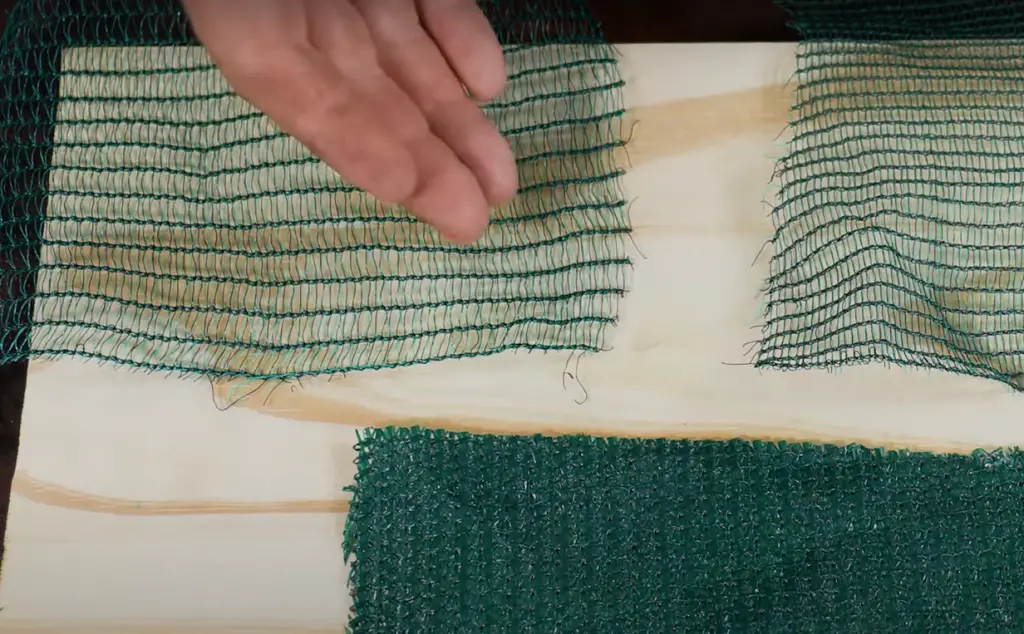
Additionally, by using taut mesh you can ensure there is enough air circulation so the plants don’t overheat.
Does garden netting require maintenance?
Yes, it is important to regularly inspect and maintain your garden netting so that it stays in good condition. Additionally, you should clean off any dirt or debris buildup and avoid using harsh chemicals when cleaning.
Does garden netting provide protection from frost?
Yes, garden netting can provide some protection from frost. However, it is important to make sure the mesh is taut but not overly tight so that air or sunlight does not become restricted from reaching the plants.
Additionally, you should check for any gaps in coverage so that nothing can get inside and cause damage.
Do I need to use other deterrents in addition to garden netting?
Yes, it is a good idea to use a combination of netting and deterrents such as scarecrows, reflective tape, kites or flags. This will help provide extra protection from larger animals that might try to get into your garden.
Additionally, make sure there are no gaps in coverage so that nothing can get inside and cause damage.
Does garden netting need to be replaced?
Yes, over time your garden netting can become worn down or damaged and will need to be replaced. Additionally, if you notice any rust spots or weak points in the mesh it is important to take immediate action and replace as necessary.
Does garden netting need to be anchored?
Yes, it is important to anchor your garden netting in order to keep it secure and ensure that nothing can get inside.
Anchor points can include heavy-duty clips or zip ties at the corners of the netting for extra stability. Additionally, make sure there are no gaps in coverage so that nothing can get inside and cause damage.
Can I use garden netting indoors?
Yes, you can use garden netting indoors. However, it is important to make sure the mesh is taut but not overly tight so that air or sunlight does not become restricted from reaching any plants inside.
Can I use garden netting in other areas of my yard?
Yes, you can use garden netting in other areas of your yard such as the driveway and walkways.
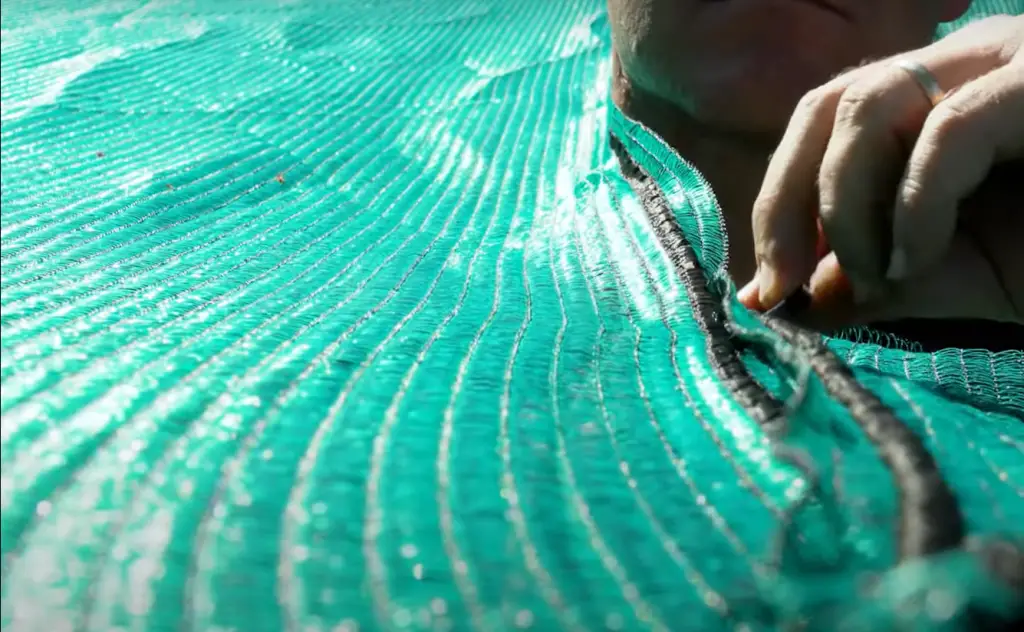
However, it is important to make sure the mesh is taut but not overly tight so that air or sunlight does not become restricted from reaching any nearby plants.
Can I paint garden netting?
Yes, you can paint garden netting. However, using standard spray paints or aerosol paints are not recommended as they can damage the material and lead to accelerated wear and tear.
If you would like to give your garden netting a new look, it’s best to use fabric-friendly paints instead. Additionally, make sure to use a flexible paint that won’t crack or flake over time.
Useful Video: How to do Netting for your Garden on a Budget
Conclusion
Garden netting is an effective way to protect your plants from pests, frost, wind and hail damage. It is important to regularly inspect and maintain your garden netting so that it stays in good condition.
Additionally, you should use a combination of netting and deterrents such as scarecrows, reflective tape, kites or flags for extra protection. Finally, if you decide to paint your netting make sure to use fabric-friendly paints and a flexible paint that won’t crack or flake over time.
Following these simple tips will help ensure your garden netting remains in good condition and provides the best possible protection for your plants.
References:
- https://www.wmjames.co.uk/blog/garden-netting-ideas.html
- https://storables.com/garden/garden-netting/





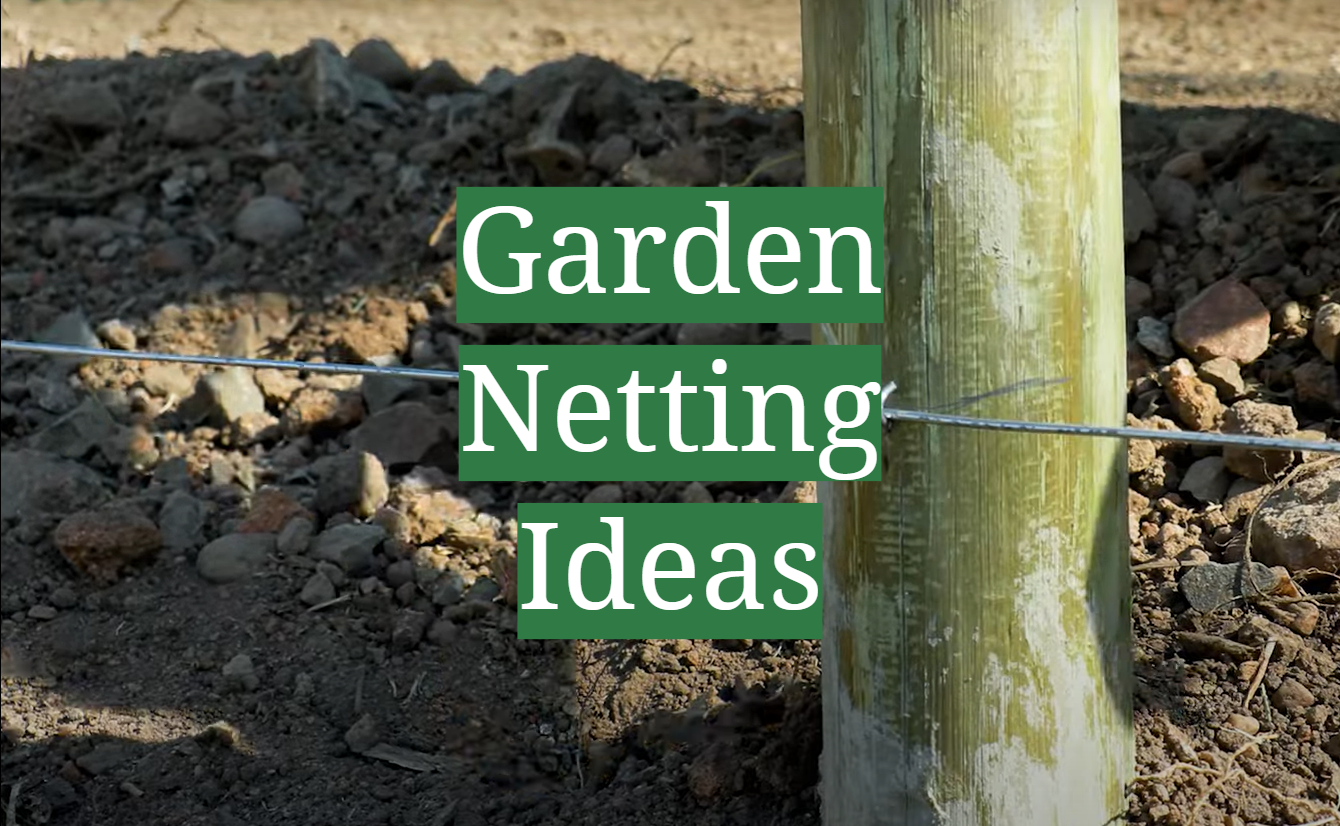
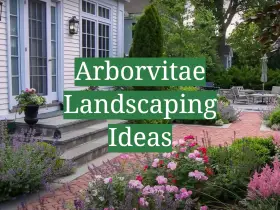
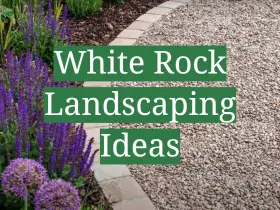
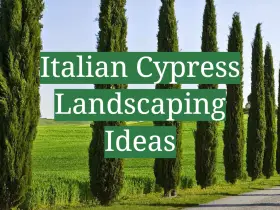
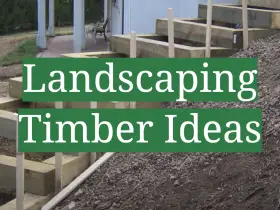
Leave a Reply
View Comments